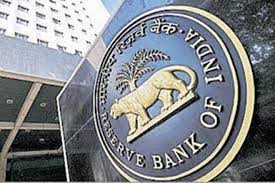What Supreme Court verdict on RBI’s 12 February circular means for banks, companies: 5 key takeaways

New Delhi: The Supreme Court’s ruling quashing the Reserve Bank of India’s (RBI’s) February 12 circular, the resolution of bad loan accounts, which were filed in various tribunals under the Insolvency and Bankruptcy Code (IBC), is likely to be impacted and get delayed further.
The apex court verdict, however, gives breathing space to many companies, especially power companies, who have defaulted on loans because of several state actions, including cancellation of coal blocks. Also, the ruling provides a huge relief to companies in the sugar, shipping, infrastructure and textile sectors which were under intense pressure.
Verdict may hurt credit discipline
As much as Rs 2 lakh crore loans of the power sector, toxic loans of approximately Rs 34,000 crore were mainly because of government departments. Many economists are of the view that in short-term lenders are expected to get some room for stressed loans, while in the long-run, negligence in credit discipline to hurt them. The verdict also restores the lenders’ discretion to decide on whether to invoke insolvency proceedings in the IBC on a case-to-case basis.
Question mark over higher recovery
The latest ruling will likely to affect banks plan for higher recovery through National Company Law Tribunal (NCLT) initiated with the specific reference to the banking regulator’s February 12 circular becomes null and void. However, Tuesday’s verdict will not affect cases filed before the February 12 circular was announced.
NPAs may rise
The central bank’s February 12 circular resulted in lenders classifying a major part their loans as non-performing assets (NPAs). State-controlled 21 banks reported a loss of about Rs 16,600 crore in the first quarter of FY19 as against a loss of Rs 307 crore a year earlier. Losses continued to move up for the second and third quarters. For state-run banks, gross NPAs hit 10.9 per cent as of December 2018.
More litigations
Some banking experts believe the apex court verdict is likely to result in more spat between lenders and borrowers around stressed loans and hurt bankruptcy proceedings, and it will put a brake on an already slow debt resolution procedure and that it may hurt banks’ earnings.
The ruling may also impact resolutions planned for cash-strapped Jet Airways as lenders-led by State bank of India (SBI) offer to acquire a controlling stake in the carrier by converting Re 1 of debt into 11.4 crore shares, based on the apex bank’s February 12 guideline.
The finance ministry and the RBI will have to assess the impact and decide the follow-up corrective measures needed especially, considering the total impact on the stressed loan resolution procedure of the entire banking sector. Experts say the banking regulator may soon issue fresh guidelines for bad loans.
On February 12, 2018, the central bank had issued a circular on the resolution of stressed assets, directing lenders to classify as a defaulter any firm that fails to meet the payment deadline even by a day revised framework.





